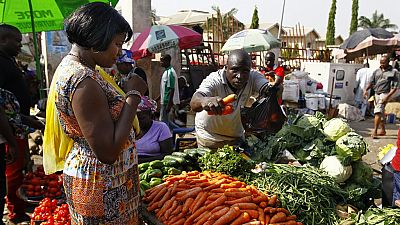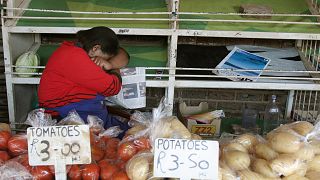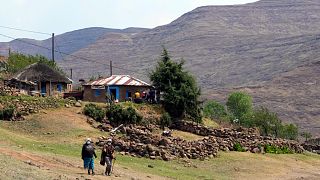Nigeria
Beyond loss of lives and property, violence and social unrest in Nigeria’s central states have triggered a sharp increase in food prices, and the strain is now being felt by consumers across the country.
Fulani herdsmen and farmers have been clashing in Nigeria’s “Middle Belt” states of, Benue, Taraba, Plateau, Nasarawa and Kogi, largely over grazing rights. All these five states are considered Nigeria’s ‘Food Basket’, as they produce much of the food staples consumed in the south.
The country’s agrarian northeast has also been hit by seven years of violence by Boko Haram insurgents, and the results have been reduced production and shortages.
Low supply compounded by rising transportation costs and restrictions on imports because of a lack of foreign exchange are all factors that have pushed prices up.
Nigeria’s economy is generally troubled at present. The slump in global crude prices has drastically cut government revenue from oil exports, weakening the naira currency.
The country’s inflation also climbed for the sixth successive month in April.
Food inflation in April rose 1.3 percentage points to 13.2 percent, with the highest increases in fish — a staple in the northeast — fruits and vegetables, bread and cereals.
“Inflation was driven by increases in prices of imported as well as domestically produced foods due to supply constraints,” the NBS stated.
The World Bank has since 2008 provided funding to the Nigerian government to support ‘fadama’ farms — a Hausa-language term for low-lying irrigable land near major rivers.
The $450 million (400-million-euro) scheme supports production and trade of rice, tomato and yams, as well as fishing, forestry and water for livestock.
Nigeria’s government wants to boost agriculture to diversify the economy away from a dependency on oil.













02:03
Muhammadu Buhari's legacy: higlight of his presidential tenure
Go to video
Gaza’s scarcity of cash fuels desperation, sparks unusual trade
01:08
Dancehall superstar Shatta Wale urges young people to back President Mahama
01:54
"Great economic potential in Africa": five African leaders have lunch with Trump